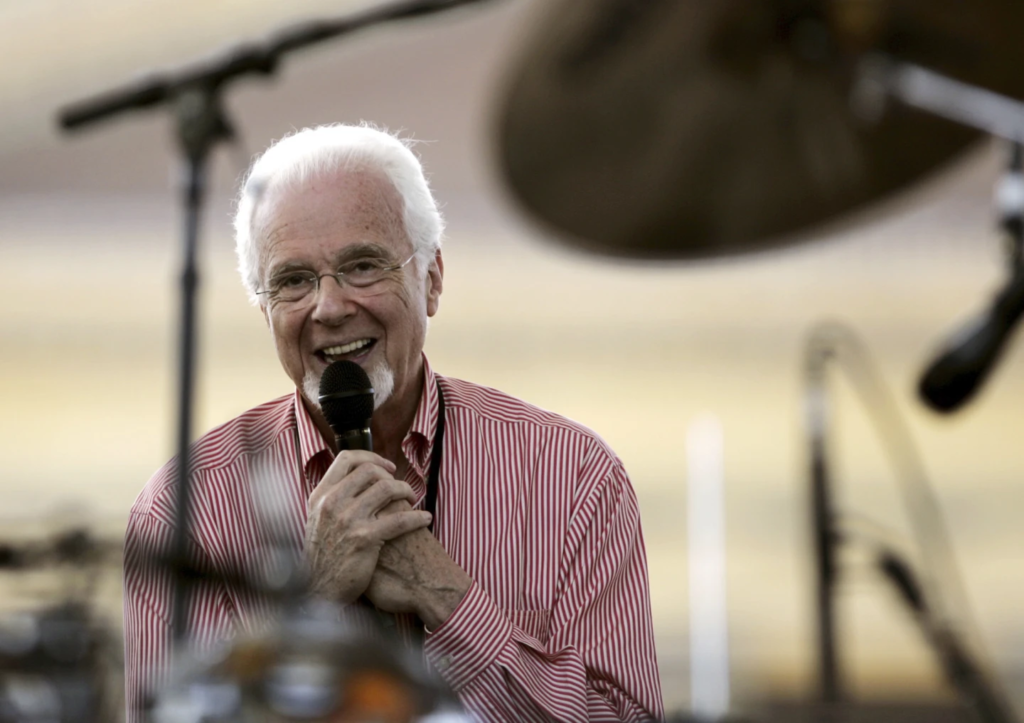Peter Nero, a Grammy-winning pianist renowned for his innovative interpretations of pop songs fused with classical and jazz elements, and who dedicated over three decades of his career as the conductor for the Philly Pops, has passed away at the age of 89.
On Thursday, Nero peacefully departed at the Home Care Assisted Living Facility in Eustis, Fla., as confirmed by his daughter, Beverly Nero, according to The Philadelphia Inquirer. In respect of his privacy, the memorial services will be held privately.
Nero’s musical genius shone through his unique renditions of popular tunes, ranging from the timeless works of Cole Porter and George Gershwin to the iconic melodies of the Beatles and Bob Dylan. His exceptional talent seamlessly blended classical, swing, Broadway, blues, and jazz, creating a sound that defied easy categorization. Embracing the label of being “undefinable,” Nero warmly accepted the characterization of his music as “middle of the road,” stating, “Middle of the road and doing great business,” during an interview with a newspaper.
Recruited by Philadelphia concert promoter Moe Septee, Peter Nero embarked on his journey with the Philly Pops orchestra in 1979, coinciding with the passing of Arthur Fiedler, the revered figure known for pioneering the modern pops orchestra in Boston. With aspirations to rival the prominence of the Boston pops, Nero boldly stated, “I’d like to beat the pants off them.”
Although Nero’s orchestra didn’t reach the same level of recognition as its Boston counterpart, it consistently achieved sold-out performances in Philadelphia, undoubtedly benefiting from Nero’s vibrant playing style and captivating stage presence.
Throughout his career as both a performer and conductor, Nero frequently returned to Broadway tunes, Hollywood themes, and the timeless compositions of Gershwin, which served as the centerpiece for the Philly Pops’ inaugural concert. However, he also delved into Motown’s rich repertoire and ventured further afield, exploring bands like Procol Harum and even releasing an album dedicated to disco and ’70s love songs.
In 1975, Nero expressed his difficulty in incorporating much of the new material emerging at the time, confessing to The Washington Post, “I find it impossible to use a lot of the new material that’s coming out. There is some rock material in my repertoire… but a lot of rock groups are selling a sound, not music. You take the tune apart, and there’s nothing there to work with.”
Nero continued to lead the Philly Pops until 2013 when his tenure as conductor came to an end due to financial constraints cited by the orchestra, making his departure from the leadership role after more than three decades of dedicated service.
During the early stages of his career, Peter Nero, then performing as Bernie Nerow, faced challenges while working in New York and Las Vegas. However, he discovered his true potential in his late twenties when he became an integral part of New York’s club circuit.
Recognizing his talent, Stan Greeson of RCA signed Nero and encouraged him to adopt the name Peter Nero. Subsequently, Nero’s career gained momentum with a string of club shows in the early 1960s, leading to regular appearances on radio and television. Over the course of a decade, he released twenty-four albums under RCA.
Nero’s remarkable musical abilities garnered him prestigious Grammy Awards. In 1961, he won the Grammy for Best New Artist, followed by another win in 1962 for Best Performance by an Orchestra or Instrumentalist for his acclaimed record, “The Colorful Peter Nero.”
One of Nero’s notable albums, released in 1963, titled “Hail the Conquering Nero,” reached an impressive No. 5 position on the Billboard pop album chart. The album featured captivating renditions of songs like “My Bonnie Lies Over the Ocean” and “Mack the Knife.”
Moreover, Nero achieved chart success with his rendition of the “Theme from ‘The Summer of ’42’,” originally composed by Michel Legrand for the 1971 film. Nero’s version climbed to No. 21 on the Billboard pop singles chart.
In addition to his performance career, Nero showcased his versatility by composing the score for the 1963 film “Sunday in New York,” which starred Jane Fonda. He even made a cameo appearance in the movie, further displaying his multifaceted talents.
Born as Bernard Nierow in 1934, Peter Nero spent his formative years in Brooklyn. His musical journey began at the age of 7 when he started taking piano lessons. Remarkably, by the time he reached 11 years old, Nero had already mastered Haydn’s Piano Concerto in D Major, playing it from memory. His exceptional talent earned him a scholarship to study at Juilliard, and he continued to hone his skills while winning various talent competitions. Eventually, Nero graduated from Brooklyn College.
When it came to his performances, Nero possessed a dislike for pre-planned set lists. Instead, he preferred to select songs spontaneously while on stage. This freedom to choose songs on the spot allowed him to embrace a mix of styles and genres, a characteristic that carried over into his work with the Philly Pops.
In an interview with The New York Times in 1982, Nero explained his approach to programming for the Philly Pops, stating, “My programs for the Philly Pops may open with ‘Die Meistersinger,’ then ‘Chariots of Fire,’ then Enesco’s Rumanian Rhapsodies, then a television theme. I keep going back and forth, and the audience bought it from the beginning.” This ability to seamlessly transition between diverse musical pieces and genres became a defining aspect of Nero’s performances, captivating audiences from start to finish.


